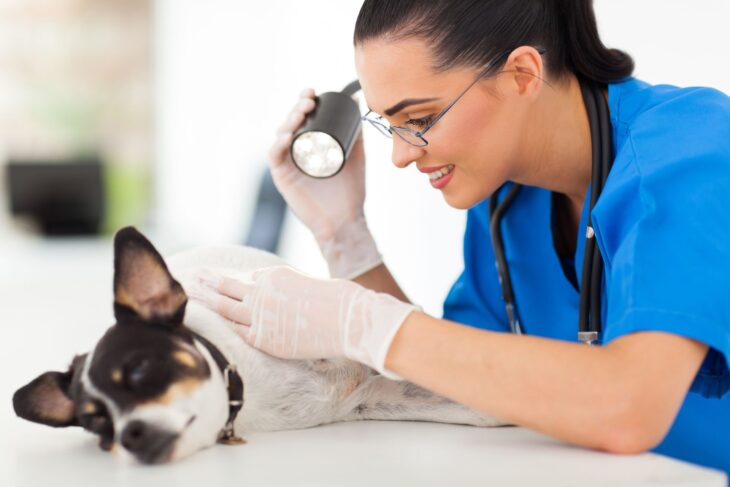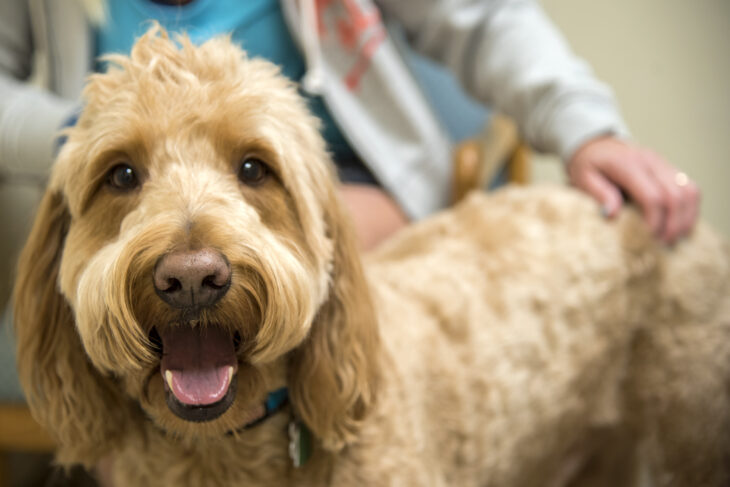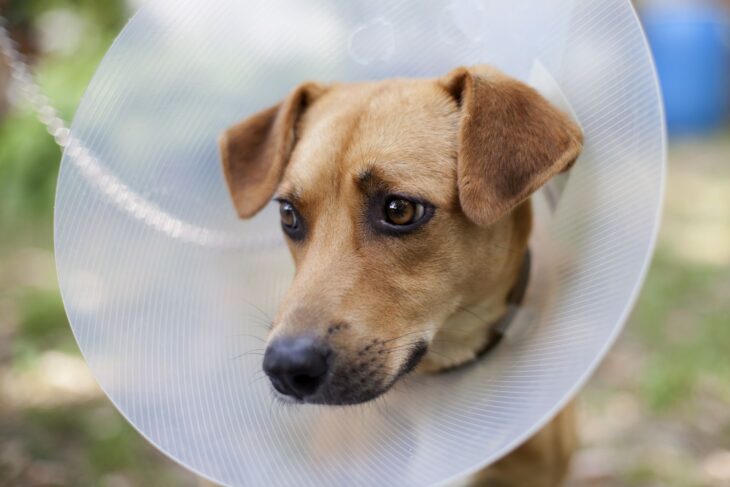It’s terrible to notice your beloved pooch suffering from skin problems, especially when you do your best to ensure every possible comfort to him, right? Well, different skin issues are unfortunately quite common in canines and need a variety of treatment and maintenance plans. Often, they can be the outcome of serious underlying problems, and if you keep them untreated, they can become fetal, causing severe sufferings to your cherished pet. Some can make him scratch or lick his skin continuously, causing much discomfort to him. Noticing such disorders leaves any loving pet owner in unnerving situations.
Besides proper care and maintenance, giving your pet coat supplements from credible sources, like VetGen Pharmaceuticals, can help your pooch combat such issues. These supplements are flavorsome, and provide him all the essential nutrients to keep his fur healthy and lustrous.
Contents
Guide to Common Skin Issues in Dogs

Source: thriftyfun
It is surprising to know that your pup’s skin can get affected by above 150 kinds of issues, making you feel you are at your wit’s end! Don’t worry, as having a precise knowledge about the problems may help you a lot to fight them off.
We are offering you proper guidance on dog skin problems, so you can diagnose them and take exact steps to keep your pet away from the discomfort they can cause.
How Should Your Dog’s Skin Look Like?

Source: telegraph
- Well, every dog is different, so is their skin condition. But you can consider him to be healthy:
- If his skin black or pink depending on his breed and genes.
- If there are no signs of itching, scratching, or swelling.
- He should have thick and shiny fur free of bald patches, ticks, or dandruff.
- The skin should be smooth and healthy.
Some Common Signs of Skin Problem in Canines

Source: sheknows
- Your dog may develop epidermis issues if you notice:
- him scratching or pulling out his coat continuously
- dullness in his hair
- Ear problems can be an underlying cause of skin issues.
- Brownish discharge from his ears.
- Continuous shaking of the head.
Any of the above signs can be an indicator of serious underlying issues and need immediate expert advice.
Some Common Dog Skin Problems and Their Treatment

Source: canna
Let’s get insight into some of the most common coat issues in canines so that you can recognize them and take necessary measures.
Environmental Allergies
If you notice your pet is scratching his feet, face, abdomen, or chest continuously, the most probable cause is, he has come in contact with environmental allergens like dust, pollens, mold spores, etc. This type of irritation in canines is called ‘Atopy‘ that causes scratching and itchiness. If it remains untreated, it can cause serious infection or dermatitis in dogs.
Treatment
If your pet suffers from the atopic allergy, he needs to go through a long term treatment session. Firstly, a blood test can help the vet identify the allergen that has affected him. The long term treatment may include removing the allergen from his skin, using medicated shampoos, and giving the pet capsules or even injections.
Food Allergies
Consuming specific proteins, including eggs, beef, chicken, or milk can cause food allergies in your pup. Is your dog scratching his anas, ears, face, or feet so frequently? Perhaps, he has been affected by food allergens.
Treatment
The dog needs to go through a process of elimination for approximately eight to twelve weeks to find the allergen. You have to feed your pet some distinct proteins that you have never given him, like pumpkin or kangaroo. Once the process ends, you have to get back to his regular diet and monitor if he again develops any symptoms. If the symptoms reappear, the most probable cause of the allergy is a specific food in his diet. To get the most out of this process, you need to avoid any suspected food that can cause allergy in the canine or give him commercially graded food containing hydrolyzed proteins.

Magne
Two kinds of mites named Scabies and Demodex, usually found in all canines, can cause Magne. If your pet faces any immune issues, these mites, especially the Demodex one, can cause severe hair loss and other skin disorders in pets causing secondary infections and itchiness.
Scabies can cause severe itching and affect your pet if he comes in contact with other affected puppies or wildlife.
Treatment
If you suspect your dog is affected with Magne, consult your vet as soon as possible and treat the pet with the proper parasiticide. Your vet may recommend an epidermis scrapping process before he prescribes any medicine.
Folliculitis
The hair follicles of your dog may get inflamed and result in folliculitis if he is already affected by other skin disorders like magne. You may notice bumps, soreness, or scabs throughout the body if the dog gets infected with folliculitis.
Treatment
The vet may prescribe him oral antibiotics, a medicated shampoo, or ointments to relieve the pet from the irritation.

Source: petplace
Ticks and fleas
The parasites like ticks and fleas live on the pets and can cause severe skin problems including, redness, inflammation, scratching, etc. in your canine. While sucking blood from your dog, fleas inject their saliva in the pup’s skin and cause severe itchiness. The situation gets worse and causes hair loss in patches if the issue remains untreated.
Treatment
You may need to use medicated shampoos, anti-flea spray, or a dog collar to keep these parasites away from your cherished pet. Also, you need to clean his carpet and bed periodically.
Hot Spots
It is another common skin problem in dogs, especially when it is summer, that can make both the pet and his owner feel miserable. Also called traumatic pyodermatitis, it is the outcome of other severe skin problems and comes with separate wet patches combining hair loss and itchiness caused by a bacterial infection. Within no time, the infection spreads, turns into a hot, red oozing, and painful lesion and gets triggered when the canine licks, scratches or chews the infected areas.
Treatment
The vet may recommend topical antibiotics, along with cleaning the infected areas. In some cases, you may need to give the pet corticosteroid or oral antibiotics to lessen the swelling or itchiness.
Along with proper maintenance and a wholesome diet, feeding your pooch dietary supplements is an effective way to maintain a healthy coat condition. They boost his immune system to combat issues like dryness, inflammation, dandruff, or hair loss and improve his lifestyle to live longer!
